1 / 7
–
Norwegian politicians and Russian correspondents use big words when they remember the late Mikhail Gorbachev.
Updated only now
–
The Russian media reports Mikhail Gorbachev died after a long period of illness. He lived to be 91 years old.
– Mikhail Gorbachev changed the world. He has opened up possibilities for de-escalation and a completely new world order, writes Foreign Minister Anniken Huitfeldt in an SMS to VG.
– We must continue to work for a world characterized more by constructive cooperation than by contradictions and conflicts, writes Huitfeldt further.
Gorbachev was the last head of state of the Soviet Union from 1985 to 1991. In 1990 he was awarded the Nobel Peace Prize for his role in ending the Cold War.
Today’s Russian president, Vladimir Putin, also expressed his deepest condolences after the news of his death.
The Kremlin spokesman Dmitry Peskov told the Russian state news agency Interfax.
– He had a charisma in which everything went completely quiet
– Gorbachev is the person who meant the most for the history of the world in the 20th century.
This is what former NRK correspondent Marit Christensen tells VG over the phone.
‘Christensen, also known as “Moscow-Marit”, was a correspondent from the Soviet Union in the 1980s and met with Gorbachev several times.
– I met many world leaders, but he broke all records, says Christensen.
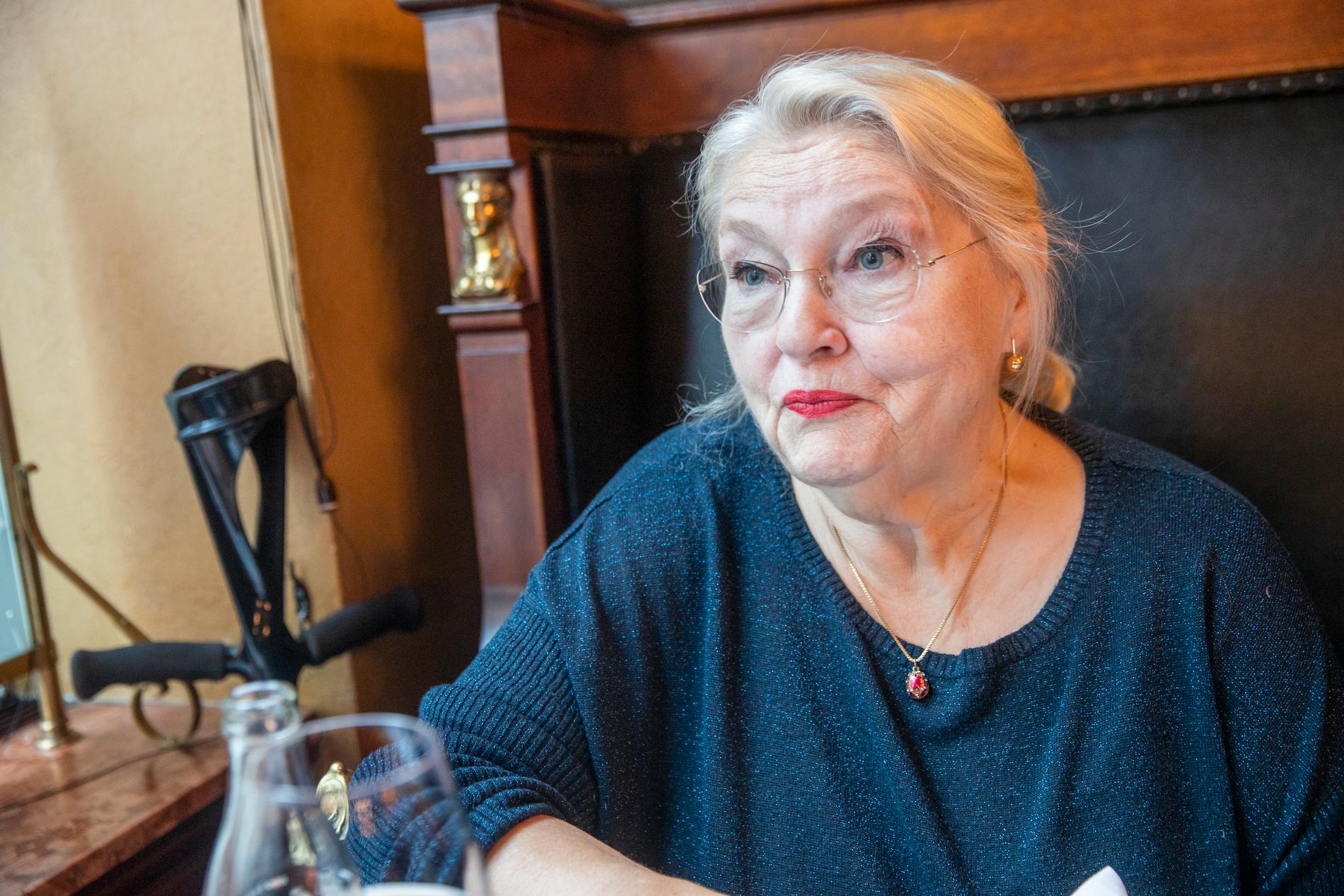
– He was a person who had a charisma in which everything became completely calm and attracted to him when he entered the room. It was a strange experience.
She points to one episode in particular, in which she and a group of journalists were invited to the Kremlin to meet the former president. She had been told not to shout questions, as they once did.
– But then he started talking to us, he says.
– A true communist
Christensen points out how Gorbachev blessed the unification of East and West Germany and did not prevent the demolition of the Berlin Wall, thus contributing to the reunification of Europe.
– He took a stand on Glasnost and Peristroika, openness and reform, in his country, and also in the world, in dialogue with the West.
For Gorbachev, “glasnost” was a means of attempting a restructuring, “perestroika”, of the economy and social life in the Soviet Union.
– But he was a real communist. He had thought that the country would change and he would remain a communist. He himself believed it was a sustainable political position.
Christensen believes we have lost an important world situation analyst.
– It is an infinite loss to the world that he is gone.
– One of the three politicians I most admired
Former NRK correspondent Hans-Wilhelm Steinfeld is, on his behalf, the Norwegian journalist who interviewed Gorbachev the most.
– I knew that on March 2 he had turned 91 and was ill. So it was a predicted death. That’s what it is when you’re 91. But he was one of three politicians I most admired in the 20th century, Steinfeld tells VG over the phone.
– The other two were Willy Brandt and Winston Churchill.
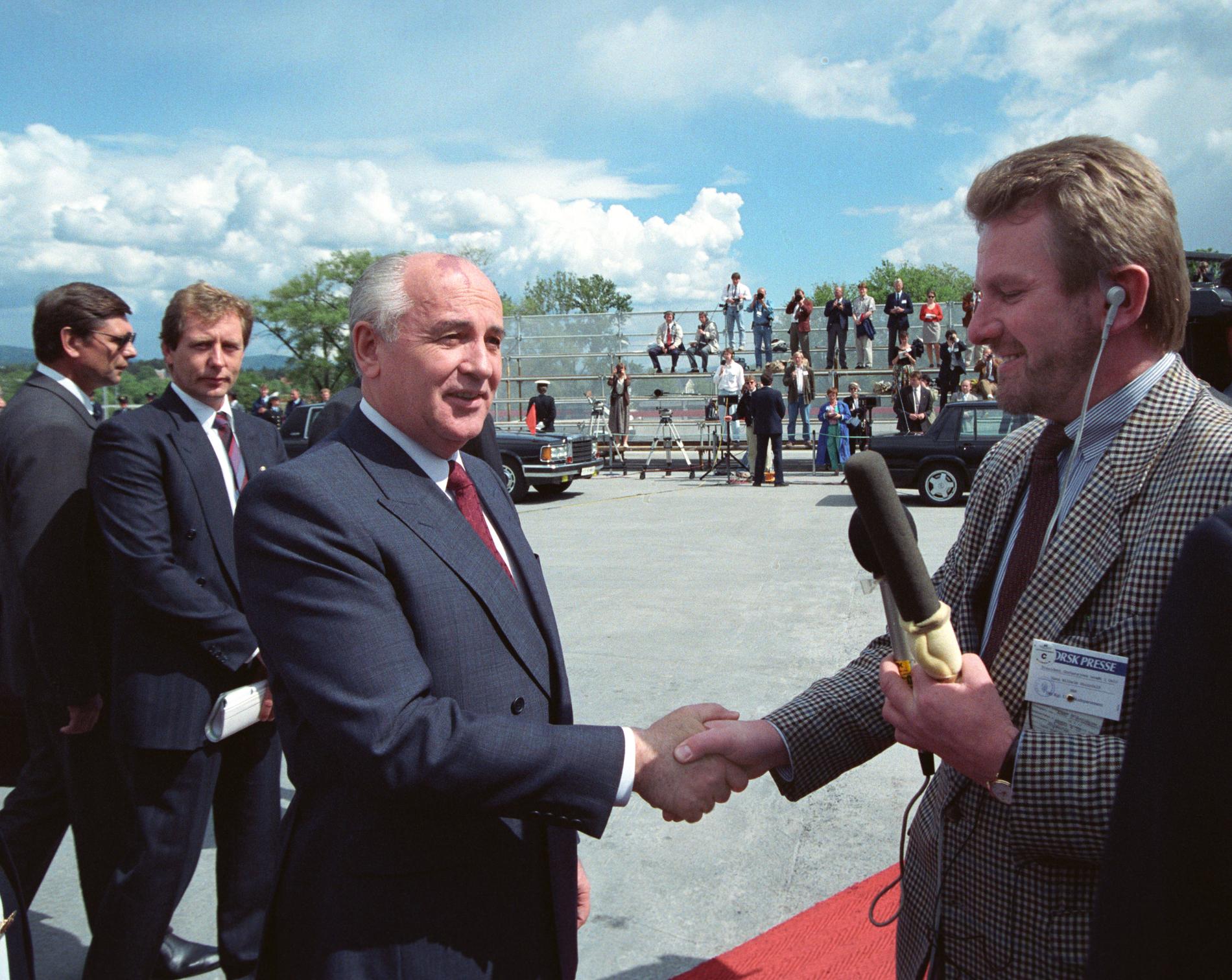
Steinfeld claims to have remained in contact with the former head of state over the years.
– I last heard it two years ago. She wrote a very nice dedication in his book about her.
– How do you rate him as a politician?
– The man received the Nobel Peace Prize because he dropped the Berlin Wall. He created the biggest positive change in European history since the fall of Nazism, says Steinfeld.
Solberg: – Deserved Nobel Peace Prize
Conservative leader Erna Solberg remembers Gorbachev as an important politician and reformer.
– As the last head of state of the Soviet Union, he carried out a series of major economic and liberalizing reforms, which contributed to the end of the Cold War and the fall of communism in much of Eastern Europe. In 1990 he received a well-deserved Nobel Peace Prize for his work, Solberg tells VG via his press officer.
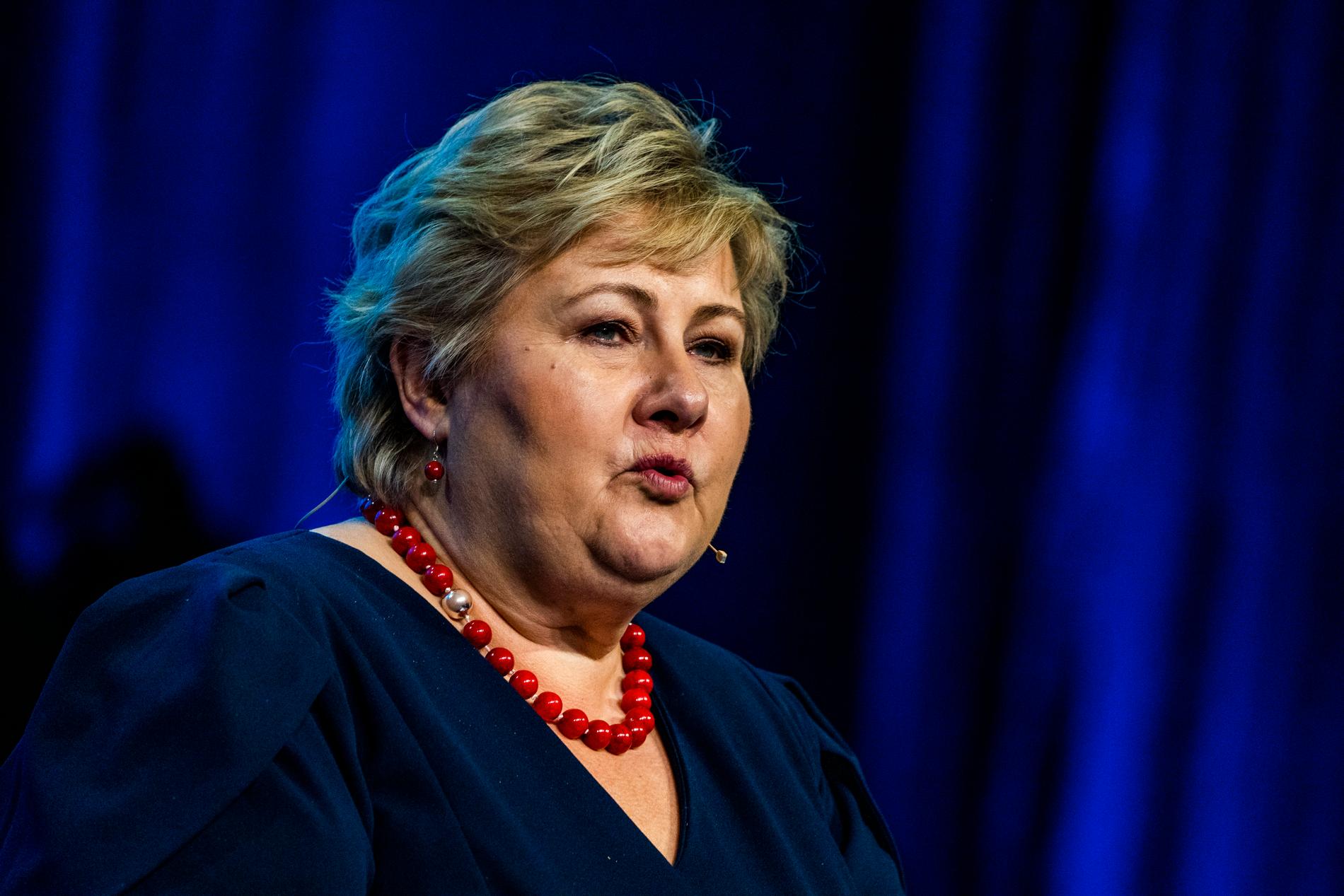
– Although the current Putin government in Russia is sadly leading us in a completely wrong direction, Gorbachev’s contribution to a more integrated world and a better relationship between East and West will forever mean an infinite amount for millions of people, Solberg continues. .
Bondevik: – It is his credit that the Iron Curtain has fallen
Former Prime Minister Kjell Magne Bondevik met with Mikhail Gorbachev twice.
– It is to his credit that the Iron Curtain has fallen and that Europe has been united, says Bondevik in a telephone interview with VG after news of Gorbachev’s death arrived on Tuesday evening.
Bondevik met Gorbachev in Oslo on May 15, 1998, after he resigned as president of the Soviet Union. Gorbachev had therefore started a new environmental organization, Green Cross.
– He visited me at the Prime Minister’s office to inform me about the work of the new organization, says Bondevik.
A few years later, after Bondevik resigned from the office of Prime Minister, the two met at an international conference in Italy. Then the two had a longer conversation in private, Bondevik says.
– Gorbachev spoke freely about his time as General Secretary of the Communist Party and his time as President of the Soviet Union. He talked about why he allowed the revolution to take place in Central and Eastern Europe.
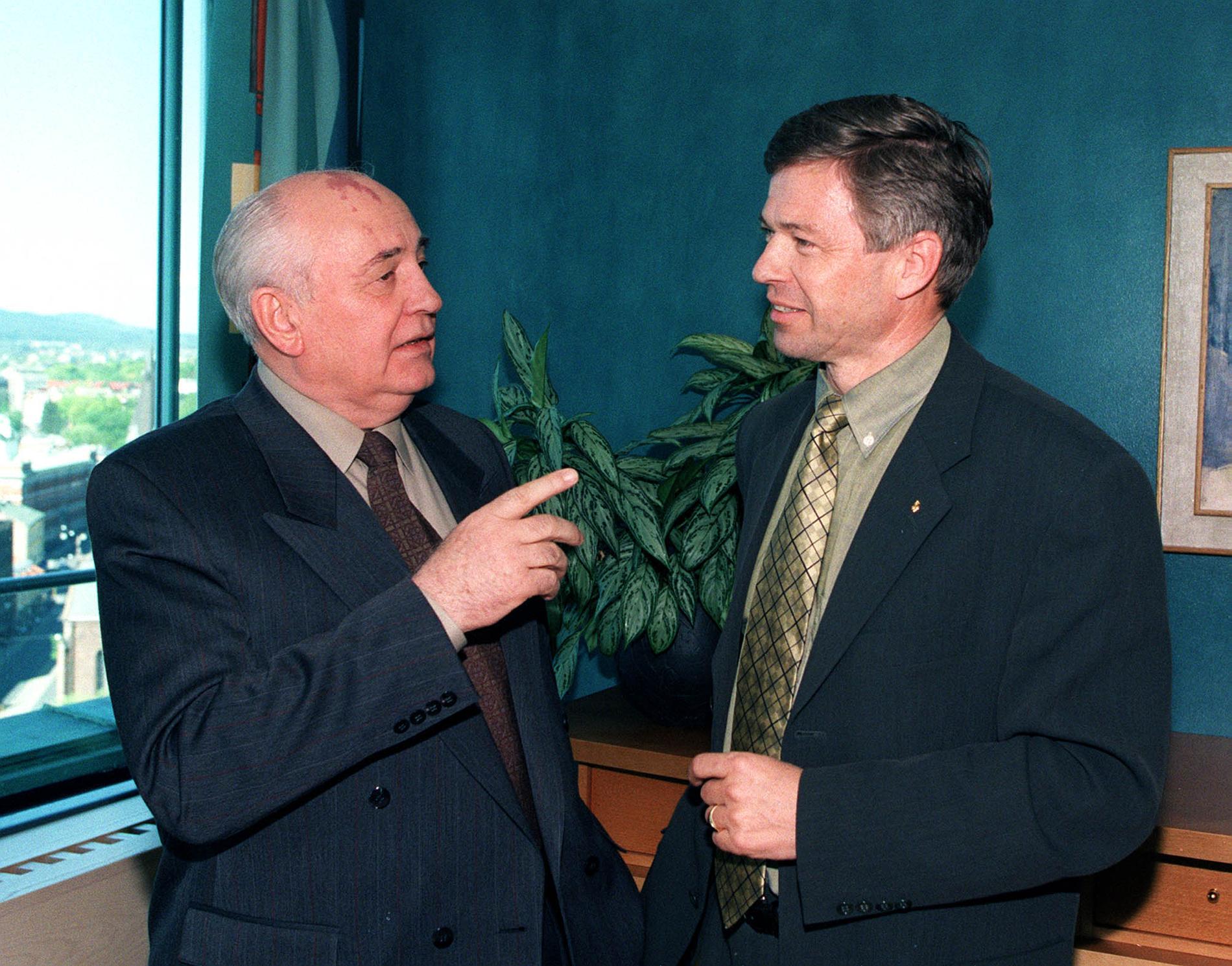
Bondevik says he asked Gorbachev why he didn’t intervene, as his predecessors did when people rebelled in Hungary in 1956 and Czechoslovakia in 1968.
– Gorbachev said he realized that the old communist system and authoritarian rule would not be sustainable in the long run. Therefore, he let the revolution take place in one country after another. When the Soviet Union began to crumble, it held back for as long as possible, but eventually collapsed there as well.
– I had the clear impression that Gorbachev believed that the time of the authoritarian communist system was over. He wanted cooperation with the West and he wanted a democratic Russia.
Bondevik says that Gorbachev was a pleasant and pleasant person, almost a bit of a grandfather.
– He was an excellent interlocutor, for whom I had great respect.
The former prime minister says that Gorbachev played a central historical role as he allowed the revolution to take place in the countries of Eastern and Central Europe.
– It is to his credit that the Iron Curtain has fallen and that Europe has been united. Putin will not be able to reverse all of this, says Kjell Magne Bondevik.
–
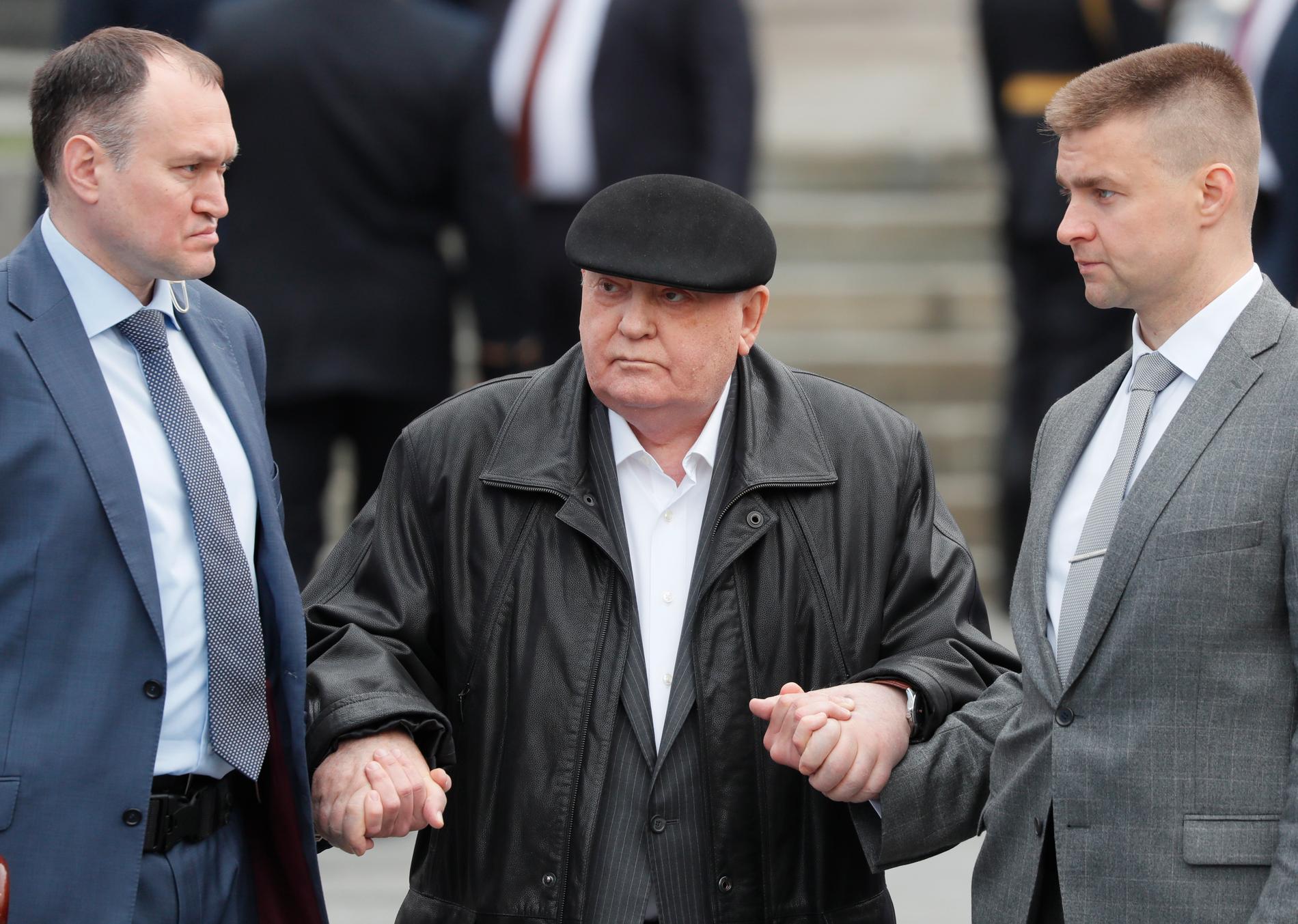
:quality(70)/cloudfront-us-east-1.images.arcpublishing.com/bloomberglinea/FAAOTWXS6JAPDDCNPIIRMBKLTY.jpg?resize=150%2C150&ssl=1)
